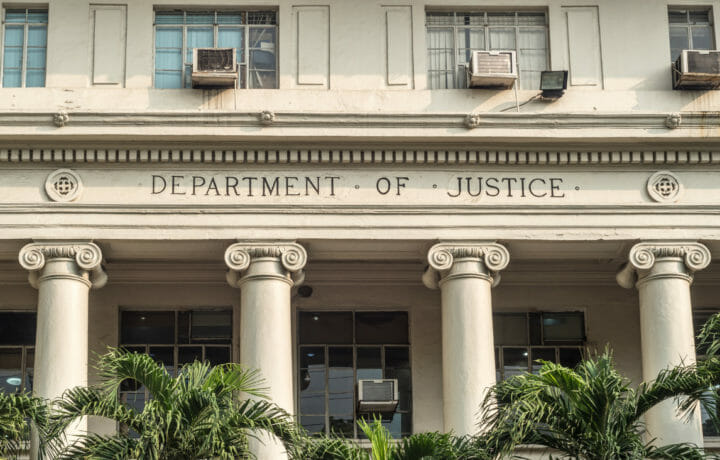Google “lawyer jokes” and you’ll find that most of them go something like this:
“What’s black and brown and looks good on a lawyer? A doberman pinscher.”
Suffice it to say, attorneys are not a beloved profession. There are no “appreciation days” for lawyers; no parades down main street with lawyers waving at cheering spectators. And yet, in spite of the downsides, I can tell you firsthand that being a practicing attorney also has its rewards.
Serving the Federal Government as a Lawyer
A work-life balance is not one of them, at least for most attorneys in private practice. That’s one reason why many lawyers new and experienced alike opt to work for the government, where there are no billable hours, no cases to chase, and none of the pressures that come with building a book of business.
Within the federal government, the largest employer of attorneys is the U.S. Department of Justice. DOJ employs over ten thousand lawyers at its headquarters in Washington, D.C., at U.S. Attorneys’ offices in all 50 states, and in component agencies like the FBI, DEA, and ATF. For some applicants, however, getting in the door still isn’t easy.
Office of Attorney Recruitment and Management (OARM)
The Office of Attorney Recruitment and Management, or “OARM”, is an obscure DOJ component that vets and evaluates all DOJ attorney applicants for suitability. These assessments are similar to, but completely separate from, any security clearance background investigation that may or may not be required, depending on the attorney’s role in the department.
Suitability reviews aren’t unique to DOJ or even attorney applicants; all federal employees are required to obtain a favorable suitability determination before starting work. Yet at most agencies, suitability reviews are not the intensive, leave-no-stone-unturned examinations applicants encounter at OARM.
I’ve represented a lot of DOJ attorneys and attorney applicants over the years, some of whom I recall colorfully characterizing their OARM suitability inquiries as akin to “a rectal exam on steroids”, “an enema”, or similar experiences that I can’t describe here. Whether the process is really that invasive is part subjective opinion and part a product of the individual candidate’s background. Indeed, some applicants find the experience entirely mundane.
DOJ attorneys have high Standards
What is clear, however, is that DOJ has very high standards for its attorneys – and rightfully so. DOJ attorneys wield extraordinary discretion to open investigations, seize evidence, compel testimony, and charge people with crimes. That kind of power is ripe for abuse in the wrong hands, so applicant vetting takes on heightened importance.
One of the oldest maxims in law is that only a fool has himself for a client. If you are an attorney applicant at DOJ, consider the cautionary descriptions of past applicants and seek out experienced counsel if it appears you’re in for a bumpy ride. Better yet, get a frank assessment of your odds before you apply. And finally, don’t assume that you’ll get a favorable suitability determination just because you hold or have held a security clearance or favorable suitability determination elsewhere. I strongly recommend against giving notice to a current employer or uprooting your life before being sure that you’ve obtained a favorable suitability determination from OARM.
This article is intended as general information only and should not be construed as legal advice. Although the information is believed to be accurate as of the publication date, no guarantee or warranty is offered or implied. Laws and government policies are subject to change, and the information provided herein may not provide a complete or current analysis of the topic or other pertinent considerations. Consult an attorney regarding your specific situation.


